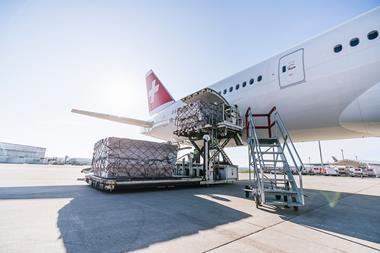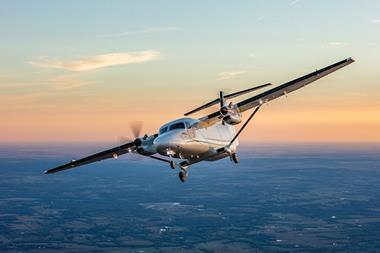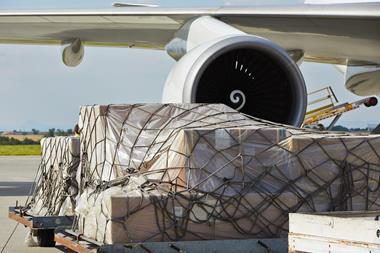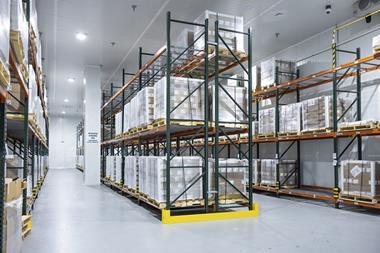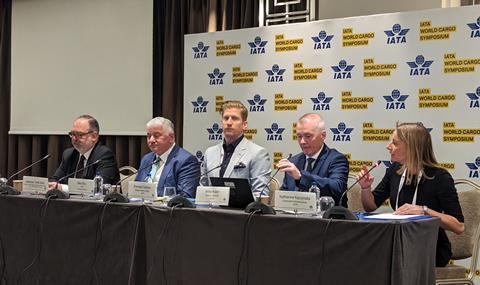
The US is leading the way in financially backing the development and use of SAF, according to IATA.
Speaking at the IATA World Cargo Symposium (WCS) press conference on day one of the event, Willie Walsh, IATA’s director general said the US government is taking action to finance SAF.
Walsh noted the Federal Government’s Inflation Reduction Act in the US provides sizeable tax breaks for the production of SAF. There are also state-led incentives available, he added.
“I think the charge is going to be led by the US given they have developed a very much incentive-led “carrot” approach.”
He suggested this could be more effective than methods adopted by other parts of the world, for example the EU, which he said is “pursuing more of a stick approach, trying to force people to use it (SAF)”.
Cost is widely acknowledged to be a major barrier to development and use, which IATA hasn’t shied away from.
Walsh said: “The cost to transition to net zero is significant – probably in the trillions of US dollars – and therefore we have to recognise that this will have an impact on cargo prices.
“Anybody who says transitioning to net zero comes at no cost I’m afraid is misleading you.”
He said while SAF is always likely to be sold at a premium to jet kerosene “it should significantly reduce from where it is today as we see production being ramped up around the world”.
In addition to the US, globally governments are starting to come on board to address the supply and demand challenge, believes IATA.
And IATA continues to work with governments with the aim of seeing greater take up of SAF investment and usage, explained Walsh.
SAF feeds circular economy
Walsh added that the fact SAF can be produced from waste has seen many countries pursuing this pathway.
“This is not just about reducing CO2 but it’s about benefitting the environment in many other ways as well. The idea that we can take waste that would have gone into landfill, which would have created additional global warming gases and turn that into SAF for our industry I think represents a fantastic opportunity."
While the cost of SAF is a challenge, it hasn’t stopped IATA or the industry from already embracing SAF with enthusiasm to integrate the future fuel further.
Walsh said: “The industry is committed to net zero in 2050 and the industry is committed to using sustainable fuels.”
He pointed out that Brendan Sullivan, IATA’s head of cargo, had earlier in the Plenary stated that all available SAF had been used by the air cargo industry in 2020, 2021 and 2022, and this year.
SAF can be part of a realistic plan for decarbonisation to meet net zero emissions by 2050 goals, according to IATA.
Walsh pointed out that IATA estimates that SAF could contribute around 65% of the reduction in emissions needed by aviation to reach net-zero in 2050.
“We believe certainly in the short, medium and potentially the longer term to 2050 SAF is the most critical component of the industry’s roadmap to net zero.”
It is achievable he said, though he acknowledged that alongside cost and supply and demand issues, there have been challenges around the availability of feedstock for SAF production, but there are a variety of feedstocks available now and multiple certified pathways.
“We have a credible pathway. We’re committed to doing it, we have significant opportunities to develop SAF and we believe that if you put all of this together we can achieve our goal of net zero by 2050.”
Nothing compares to SAF…for long haul
Addressing criticism and skepticism of SAF, Walsh said there won’t be any major technological breakthroughs by 2050 that will compete with SAF.
Walsh pointed out that while new technologies like hybrid-electric and hydrogen can play a role in short-haul flights, evidence points to these technologies not playing a bigger role with long-haul flights where SAF is still the main contender to reduce emissions.
“75-80% of the CO2 produced by our industry comes from flights greater than 1500 km, there’s no evidence that hybrid-electric or hydrogen will play a role in abating that CO2.”
IATA is urging governments to support the air transport industry like they do other industries, “recognising that our industry is hard to abate because we will continue to depend on a liquid fuel to provide the energy for the vast majority of long-haul flying that we do".












